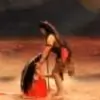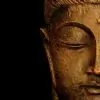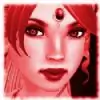1. there is not much said about anyone's experiences other than yudi.
we know all the kings, yudi's family saw hell first , then heaven.
but we dont know what their experience was and for how much time, since they died much before yudi.
2. also its very contradictory that yudi is ready to leave them fallen while climbing the mountain , listing their flaws (which seems insignificant among their other qualities , to me atleast. esp draupadi's - yudi you stake her, she forgives u and u still say this!)
but is not ready to leave hell when he sees them there and duri in heaven. what happened to the renouncement of ties dear yudi?
3. when yudi is stubborn for the entry of the dog, indra/devas ask him about leaving his bro and drau in the mountains, yudi replies they were dead and he couldn't do anything for them?? (were they just fallen or did they die instantly? the earlier text says none of them turned back to see anything?)
4. coming back to point , we dont even know if duri and his bros stay in heaven is temporary or not. KMG mentions him as a part of the demon Kali( who is reigning lord of kali yuga) and shakuni as part of Dwapara . i dont know if the other versions say the same!
Edited by bhas1066 - 11 years ago




































